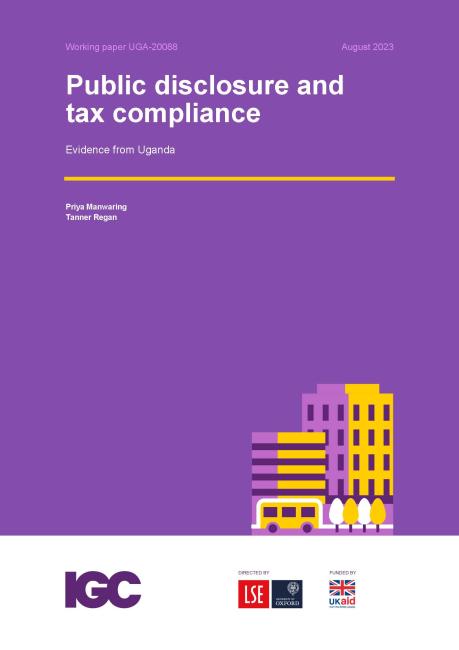Public reporting and property tax compliance: A field experiment in Kampala, Uganda (2020)
Property taxes are a key source of revenues for the Kampala Capital City Authority (KCCA), accounting for over 35% of own source revenues in FY 2018/19. However, there is significant room for improvement in property tax revenue collection; only 30% of properties complied with the tax in FY 2018/19. Ongoing discussions with the KCCA and preliminary administrative data analysis highlight that limited tax compliance is a key constraint to enhancing revenues in the city and may reflect low citizen satisfaction and tax morale.
In order to improve tax morale, both to increase municipal revenues necessary for urban service delivery, and to improve relations between citizens and the city government, the KCCA is keen to better understand the determinants of voluntary tax compliance and policy levers to improve this. Kampala provides a unique context where there is the political will to collect taxes from high property worth individuals.
This project involves conducting a randomised field experiment in close collaboration with KCCA. Through this experiment, public lists of compliant and non-compliant taxpayers will be shared with 100,000 taxpayers in the city. Taxpayers will be warned of this in the first financial year (FY 2020/21), and lists will be published in the second year (FY2021/22), allowing us to identify and distinguish both the direct and peer effects of public reporting. Randomization of treatments will be done at the cluster level to mitigate spillovers contaminating control groups. This allows for the casual estimated effect of our treatments, however requires that our questions remain sufficiently narrow to have statistical power.




